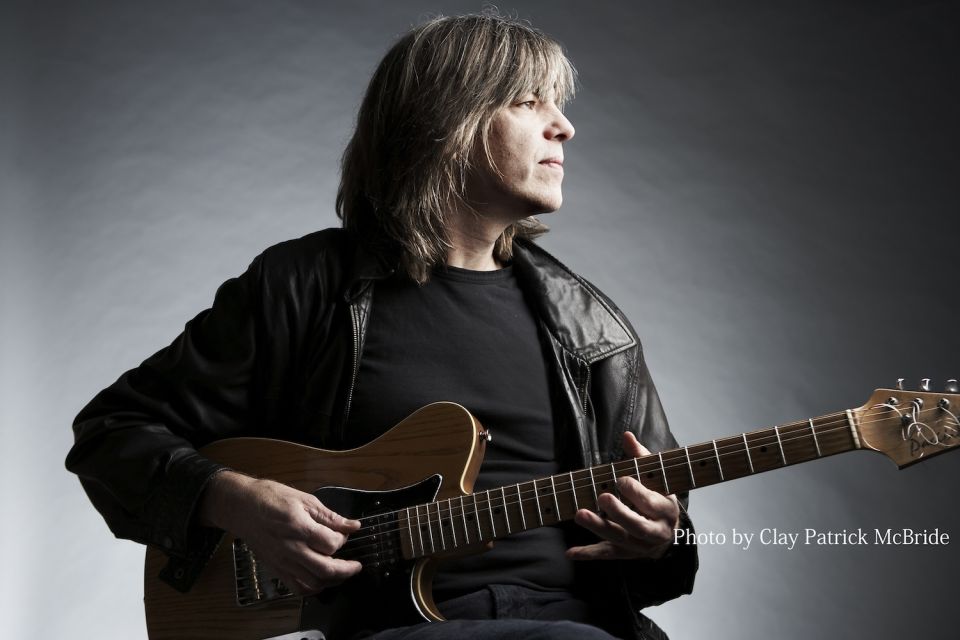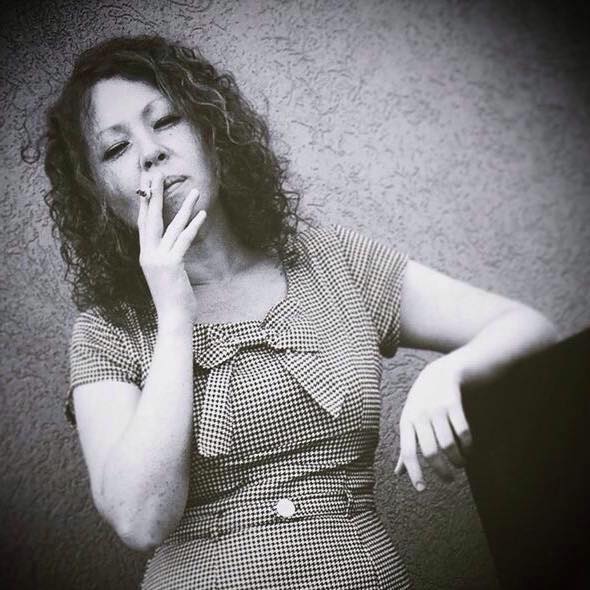Exclusive Interview with Mike Stern

What happens when you become a legend? Do you hang around your trophy room with a feather duster? Do you turn into a grumpy recluse full of contempt for the youth? Mike Stern, a six-time Grammy nominee jazz guitarist, holds all kinds of titles and awards naming him a jazz legend and the best player of all times. You would think he could allow himself some healthy condescension towards… Well, pretty much everything. But he doesn’t. Mike Stern is an active musician, teacher, and, recently, a judge in Made in New York Jazz Competition. A judge who’s sincerely in awe with everyone who chose music as their primary language – a judge who believes everyone who plays is a winner.
Q: In a few interviews, you’ve admitted that when you prefer to let the music lead you. When on stage, you take it to the point where you seem to be completely immersed in it. Paradoxically, it gives you an incredible control over the music, over the audience, and over the energy of the performance. Is that a skill you’ve developed consciously, or something you’re doing intuitively?
It depends on how comfortable I feel. Sometimes, when I’m struggling with the music or just learning it, then, of course, I’m more self-conscious. But when you really know a song or are comfortable with people around you, then it’s much easier, it kind of works unconsciously.
Q: Has it been like that since you started playing?
Yes, it’s always been the same. When I’m playing new music I’m kind of scuffling from time to time because it’s uncomfortable. But sometimes even that’s good, even uncomfortable is good — you have to come up with something different, or by accident you come up with some totally different stuff. It’s an interesting thing that happens. Mainly, when you are comfortable with the musicians around you, and you’ve played with them for a while, and you are comfortable with the music that you are playing, and you know the language of whatever you are playing — it’s jazz, of course, — when you really feel you know enough of the language you can express yourself.
Q: As a mentor and teacher, do you have any techniques for your students that help them find the right connection and play music from the heart? Your own energy is amazing, but how do you infect others with it so they could find their own voice? Do you enjoy doing that?
When I teach, I just try to give my own experience. When I started playing guitar, I was playing more blues and rock, like B. B. King, Jimi Hendrix, Jeff Beck, Eric Clapton, the greats of the sixties, and I was listening to Motown, a lot of soul music, and played off the radio. Then later I got into jazz, when I was about 18 I started falling in love with it more and more. So when I am teaching students I try to tell them that it was difficult for me, especially with learning the new stuff that was more evolved, like jazz — that’s for better or worse, but more evolved. I remember how hard it was for me and I try to show it to them because sometimes they think that maybe it was easier for me — and it wasn’t! I think everybody acquires their own voice eventually; it’s just a question of playing more. Sometimes it’s up to the listener to hear the difference in the voices. Not everybody can hear everybody because there are so many musicians on the planet but everybody has their own voice. When I teach guitar, everybody has their own way of doing things that is slightly different from everybody else.
Q: Speaking of a younger generation of musicians, what is your vision of the future of jazz now that you’ve become a judge in Made in New York Jazz competition? Do they share any common traits that would give us, the listeners, a hint of what to expect in the coming years?
It’s a good question and hard to answer because jazz is going to many different places at once. The best definition of jazz that I ever heard was from Duke Ellington, which I just heard recently. He said, “Jazz is freedom of expression.” That’s all he said, and he said a lot. There is improvisation and freedom of expression everywhere, not just music, of course, but in the music world it is going into many different directions. It could be more electric jazz, or acoustic jazz, or a combination of both. There are more traditional, classic directions, or more contemporary, more modern, where they’re trying to discover new ways. Jazz is wide open; it leads to a very open field, which I like very much. To me, it’s a certain kind of a feeling with any kind of music that’s really important. And the time, I think, is so important in music. I try to stress that when I’m teaching, that the time and the feeling are important. I tell students to listen to different people and check out their time and feel. I also tell them to practice their exercises in time, as soon as they can. The new exercise, for instance, practice it as soon as you can, slowly at first, but in time, sometimes with the metronome, sometimes without it, just to hold your own time.
Q: In your observation, what’s the prevailing tendency among the contestants: do they try in their own way to mimic — and preserve — what’s considered classic jazz, or do they strive to invent a radically new approach to the genre?
I hear a lot of both things, both traditional jazz and modern. There are a few musicians who are trying to do something completely new. Let me just say there are a lot of wonderful young musicians really playing their asses off. In some ways, the level of knowledge and technique has really gone up. The only thing that might be more difficult, but not impossible, is that there are less places to play so it’s hard for musicians to get gigs to play their stuff. That’s so much of the learning process when you start getting more experience and play in front of other people and share your music with them. That communication with the real audience is an important thing.
Unfortunately, the unintended consequence of the Internet, the information age, is trampling quite a lot on intellectual property. I hope that balances out in the next 10 years or so, or hopefully, before that. Most of the entertainment dollars are going to Silicon Valley, to Apple, or Google. Google is making billions off YouTube, and there is problem with intellectual property owners not getting their fair share. See, I don’t care much because I’m established and I’ve had a great run of it, but I feel that it’s another problem for young players that they need to overcome. Hopefully, these huge companies will be fair to them and somehow pay people for what’s up there. And right now, there is lot of stuff that’s totally for free.
Yaacov Mayman (Art Director), Mike Stern, Misha Brovkin (Founder) www.madeinnyjazz.com
Q: Right now, it feels like younger musicians are the weakest link in this system. They sort of fell off the wagon, and everybody else is making money off their talent.
Yeah, the technology people are making money. And it’s fair for not just musicians; it’s the same for photographers, writers… Even movies at this point. Sometimes it’s up on the Internet before it comes out. They spend millions of dollars on production, and suddenly it’s up there for free. All that stuff needs to be controlled, not just the illegal downloads, the whole system. You know, whenever there is something new and amazing, there is always a bad side to it as well, like with all the wonders of the industrial age, the nuclear age — now we have to deal with all the pollution. Now, in the information age, everybody was so excited — and I said right away, there will be bad stuff. No one cared about Napster. Free promotion, they said, it’s great! Well, I said, not so much. Now you see what happened — a lot of record companies closed, for instance. They need to get a grip on it, somehow the system needs to be worked out, and I hope it will be. As usual, the laws are way behind the technology, and they need to catch up.
Q: Speaking of the advantages of the Internet age, Made in New York Jazz Competition gives a unique, once-in-a-lifetime chance to musicians from all over the world.
Totally! And that’s a definite advantage. That’s amazing stuff right there.
Q: How do the schools of jazz differ around the globe? Do musicians play differently depending on where they come from?
Yeah, sometimes it differs depending on the environment, on the music that they hear growing up, but there is a lot of common ground, and it’s beautiful to hear. I remember Jim Hall, an amazing guitar player, a classic jazz player — and kind of modern, too, one of those guys whose beautiful sound will stay forever, he was playing in Italy with an Italian musician. Hall couldn’t speak Italian and the other guy couldn’t speak English but they could play jazz standards together! Music is very much a universal language.
Q: Being someone who’s been setting the musical standards for decades, I’m sure you have come across the situations when you recognized your own influence in some of the works of younger musicians. How does it feel to be reinterpreted?
Well, whenever people say that my music was a big influence on them, it’s a big honor.
Q: Do you ever hear it yourself?
Sometimes, yes, sometimes I hear it, sometimes people tell me. It’s a truly rewarding experience, I mean, wow, someone liked my music enough to try playing in a certain way that is theirs but has a little bit of my influence, or maybe they write something that’s influenced by what I wrote.
Q: Does it matter to you how it is executed? What if it’s not perfect?
No! You know what matters to me more than anything? It’s the effort of learning, it’s what people put in their music. The effort is 99.9% of somebody trying to really develop their potential and put a certain amount of time into practicing. I mean, you don’t have to, you can just have fun playing and music is just a great place to put your energy. Learning music, listening to music makes you more self-aware. It often puts people in a good place, it often feels like the answer. It’s just positive stuff, basically, and all of it can be cool, all of it. But I think the energy and effort of learning stuff is the most beautiful part of it. And if I hear someone influenced by me, I don’t get credit for it, obviously, but I just feel very flattered, delighted even. And happy.
Q: Years ago, when you were and up-and-coming musician yourself, would something like Made in NY Jazz Competition help your career?
Maybe, yes. I was never so much in the competitions because I was kind of nervous about competing. Whenever I took a test at school, I’d get so nervous I would fail. Well, not all of them. [laughing] But there is something really cool about it. As long as you keep it in perspective, because there really are no winners or losers. It is a format for people to come together and play their hearts out.
Q: And get exposure, which is also very important.
Exactly. The thing is, I had to judge another thing recently, for the first or maybe the second time, and I could not tell who was number one. I had to pick somebody but I could not tell. This is probably going to be the same case here. [laughing] I think whoever is in the competition, or even people who are not in the competition, have to remember to just play their hearts out. It’s not a winning or losing thing, it’s not sports, you can’t really tell — it’s so subjective. You can play a few notes but not be able to play fast and technically great, and some people will love that! You can even miss notes but it would feel soulful. In many ways, there is no competition in music but it is nice to have a format to show people’s potential. So, if anybody doesn’t win, they shouldn’t feel bad — because there really is no winner or loser. At the end of the day, music is just about playing your heart out.
Exclusive for Made In New York Jazz Competition
by Katia Mukminova, a Brooklyn freelance writer and jazz lover.

















